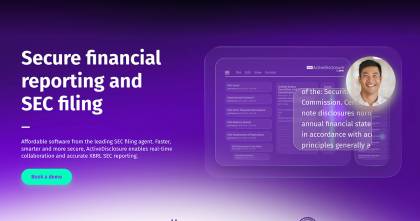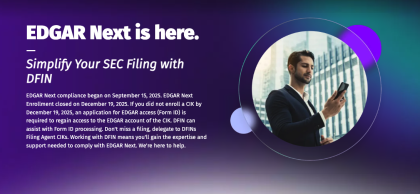What is SEC Form 11-K?
Some companies offer benefits to their employees in the form of stock purchase plans or 401(k) plans that include company stock. A stock offering of these types requires a unique type of reporting to the SEC — specifically Form 11-K. The purpose of the form is to track insider purchases and sales of stock, specifically those involving employees in the company. Businesses must provide detailed financial information about the stock plan’s financial condition and net assets, as well as the value of its stock for public access.
Form 11-K chiefly exists to provide a greater degree of transparency for public companies, their employees, and investors. Even businesses that file other annual reports with the SEC, under Section 13(a) or 15(d) of the Securities Exchange Act, are usually required to submit this SEC filing each year. With this information, investors and plan participants can compare the value of the stock and the performance of the plan, as a way of determining how to guide their own investments.
Who is Required to File Form 11-K?
In essence, any public company that files reports pertaining to securities under the Securities Act of 1933 may be required to file SEC Form 11-K as well. Specifically, public companies that decide to offer stock for purchase as part of a benefit or retirement plan must file the form each year. These plans include 401(k) plans offering shares of company stock, or employee stock ownership plans.
Employers who offer stock option plans or restricted stock plans may not be required to file Form 11-K. Additionally, companies that provide all the details required in Form 11-K as part of their annual SEC Form 10-K filing may also be exempt from filing Form 11-K. Business administrators who are unsure whether they need to file this SEC form should consult with a compliance expert to confirm.
SEC Form 11-K Reporting Requirements
SEC Form 11-K reporting requirements call for detailed financial information about the plan, its applications, and expenses. Companies must provide the following disclosures:
- Audited financial statement of the plan’s financial condition in the past two fiscal years
- Details about the plan’s investments and net assets, particularly in company securities
- Audited financial statement of comprehensive or net income, as well as changes in plan equity for the last three fiscal years
- Sales and purchases of securities involving employees
To provide this information, companies should submit balance sheets, income statements, and records of expenses for the plan. The rules that the business must follow in providing details depend on the type of plan that the company offers. ERISA plans have their own protocol for filing, while non-ERISA plans should follow the guidance in special rule S-X Article 6A.
Before submitting the annual report, the company must seek an independent auditor, usually an independent accountant, to review the information and issue a statement confirming its accuracy. Independent audits are a chief component of confidence in the financial system at large, creating a trail of transparency that investors and employees can follow.
Steps to Prepare and File SEC Form 11-K
The filing deadline for SEC Form 11-K comes 90 days after the end of the plan’s fiscal year, but companies with ERISA plans have up to 180 days to submit the report. When needed, companies may be able to request a 15-day extension of the deadline. To complete the paperwork, businesses should follow these steps:
- Assemble required financial statements and disclosures
- Engage a qualified auditor to review and respond to plan financial statements
- Prepare a filing for Form 11-K
- Review information for completeness and accuracy
- Submit the SEC filing through the EDGAR system by the deadline
Companies that submit the form late should file Form 12b-25 to notify that they will be filing Form 11-K past the deadline. Failing to submit the annual report on time may lead to additional scrutiny from the SEC, as well as possible limits on issuing future securities. Reports with inconsistent or incomplete information may fail the review of the independent auditor, or otherwise require additional engagement with the SEC to resolve comments.
Benefits of Accurate and Timely Form 11-K Filings
Investing the time to prepare SEC filings and submit them on time, particularly Form 11-K, offers benefits to both investors and businesses. The business gets the advantage of building and maintaining a culture of transparency that increases investor trust. Company administrators feel more confident in their commitment to compliance and corporate governance, with less worry about SEC scrutiny or financial penalties. In turn, investors and employees get the information they need to make wise investment choices.
Meeting the reporting requirements of the Securities Exchange Act calls for careful attention in recordkeeping, preparation, auditing, and filing. Companies that rely on businesses such as DFIN for SEC reporting software get a streamlined process that improves accuracy and efficiency for each filing. To learn more about our compliance solutions, contact us to request a demo.

